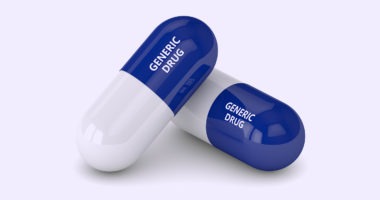Tracking Fine-Chemicals Investment
Small molecules still dominate late-stage pipelines and remain significant in early-stage development as well. So how does that translate to contract manufacturers of advanced intermediates and small-molecule active pharmaceutical ingredients (APIs)?
DCAT Value Chain Insights examines the latest developments and investments by fine-chemical producers and contract development and manufacturing organizations (CDMOs) and contract manufacturing organizations (CMOs).
Latest investments
As the industry nears the halfway mark in 2018, what have been the key announced or completed investments in manufacturing capabilities for fine chemicals, small-molecule APIs, and intermediates? An analysis from June 2017 to the present (early May 2018) shows investments in high-potency manufacturing, low-temperature production, controlled substances, and both small- and large-scale API manufacturing.
Ampac Fine Chemicals and Noramco. Ampac Fine Chemicals (AFC), a Rancho Cordova, California-headquartered API manufacturer, and Noramco, a Wilmington, Delaware-headquartered producer of specialty APIs, announced a partnership in March 2018 to produce certain US Drug Enforcement Administration (DEA) controlled substances. Noramco will continue to be the marketer and will use AFC as the contract manufacturer to supplement existing Noramco capacity. The DEA Schedule II and III controlled substance APIs are bulk actives for regulated pharmaceutical finished dose customers. AFC recently registered its large-scale controlled substance manufacturing plant in Petersburg, Virginia with the DEA, thereby adding to existing controlled-substance manufacturing capabilities at its facility in Rancho Cordova, California. The Virginia facility gives Noramco extra capacity and a facility to add to its in-house capabilities in Wilmington, Delaware.
Avista Pharma. In November 2017, Avista Pharma Solutions, a Durham, North Carolina-headquartered contract testing, development, and manufacturing organization, completed facility upgrades to double its API manufacturing capacity at its Longmont, Colorado site. The site’s three existing GMP drug-substance manufacturing suites were upgraded, and a fourth GMP suite was added. The facility’s non-GMP capacity was also doubled with the addition of two large-scale development suites.
BASF. BASF plans to build a new specialty amines plant at its existing site in Nanjing Chemical Industry Park, China. The new multi-product plant will be able to manufacture 21,000 metric tons per year and extends BASF’s amines portfolio at the specialty amines complex in Nanjing. The plant is scheduled to come on stream in 2019 and will mainly produce 1,2-propylenediamine (1,2-PDA), n-octylamine (n-OA) and polyetheramine (PEA). 1,2-PDA is used as a building block in manufacturing pharmaceuticals. BASF also has manufacturing capacities for both 1,2-PDA and n-OA, at its site in Ludwigshafen, Germany. Manufacturing plants for PEA are located at BASF sites in Ludwigshafen, Germany, Geismar, Louisiana, and Nanjing, China.
BioVectra. BioVectra, a Charlottetown, Prince Edward Island, Canada-based CDMO of intermediates and APIs, is expanding production capacity for ferric citrate. Earlier this year, the company signed a long-term supply agreement with Keryx Biopharmaceuticals, a Boston, Massachusetts-headquartered biopharmaceutical company, to manufacture ferric citrate, the API in Keryx’s Auryxia tablets, a medicine approved for treating two common complications of chronic kidney disease.
In 2017, BioVectra completed its fourth GMP intermediate and API manufacturing facility in Atlantic Canada, a 55,000-square-foot manufacturing facility in Windsor (near Halifax, Nova Scotia) that includes 20,000 square feet of production and laboratory space as well as a 6,000-square-foot warehouse. Overall, an investment in the range of $30 million was made in the site, which the company acquired from Sepracor and which it invested to add 40,000 L of fermentation capacity, downstream processing equipment, and new preclinical fermentation and potent chemistry suites. BioVectra’s additional three GMP facilities and headquarters are located in Charlottetown, Prince Edward Island, Canada.
Cambrex. Cambrex, a CMO of small-molecule APIs, reported in April 2018 that it has completed the construction and validation of a new $3.2-million, 11,000-square-foot analytical laboratory at its High Point, North Carolina facility. The laboratory’s primary function is to broaden analytical support for customer projects being developed and manufactured at the High Point site while forming part of a plan to support Cambrex’s global analytical development and method validation needs. Cambrex acquired the 35,000-square-foot High Point site, formerly PharmaCore, in October 2016. This latest expansion at the facility brings the investment at the site to over $5 million since its acquisition by Cambrex and follows the announcement in May 2017 of an increase in pilot-scale manufacturing capacity at the site.
Cambrex also reported that it installed multiple continuous flow reactor platforms at the High Point site to support development of processes for clinical and commercial supply. The investment in developmental capabilities builds upon the company’s recent expansions at commercial-scale in its continuous flow production unit at its Karlskoga, Sweden facility, which is capable of producing multiple metric tons of high purity intermediates per annum.
Cambrex also expanded chemical and analytical development capabilities at its Charles City, Iowa plant. In November 2017, Cambrex completed an expansion of cGMP small-scale capacity at its plant in Charles City. This followed the completion of an expansion of large-scale manufacturing capabilities at the Charles City site and an announcement of the construction of a $24-million, 4,500-square-foot highly potent API manufacturing facility in Charles City, which is due to open in 2019. In 2017, Cambrex also announced an investment in R&D and manufacturing capabilities for generic APIs, at its site in Paullo, Milan, Italy. This investment follows the installation of a new pilot plant at the Milan site in 2017.
CordenPharma. CordenPharma, a CDMO of APIs and drug products, completed an expansion for commercial oligonucleotide API manufacturing at its site in Boulder, Colorado. The expansion, which was completed in the first quarter of 2018, provides cGMP oligonucleotide manufacturing capacity up to 2 mol, with an increase in total commercial capacity up to 500 kg annually.
In 2017, CordenPharma announced an investment of EUR 3.7 million ($4.3 million) in the manufacturing site infrastructure of its small-molecule manufacturing facility in Liestal, Switzerland. In addition, an investment of approximately EUR 2 million ($2.3 million) in new automated development and optimization equipment was made to facilitate development services and an upgrading and expansion of analytical equipment.
Delmar. Delmar Chemicals, a LaSalle, Quebec-headquartered manufacturer of APIs, pharmaceutical intermediates, and other organic fine chemicals, is investing $45.8 million to increase production capacity of its LaSalle API plant to make it a Center of Excellence of Active Pharmaceutical Ingredients. Delmar was acquired in 2011 by Holding F.I.S. (HFIS), a group based in Italy that owns four production units. Between 2011 and 2015, HFIS invested $50 million to support growth for Delmar Chemicals, which now employs 96 people in its LaSalle plant.
Dipharma. In April 2018, Dipharma, a Baranzate, Italy-headquartered API manufacturer, agreed to acquire Kalexsyn, a Kalamazoo, Michigan-headquartered contract research organization providing chemistry services. It provides custom synthesis, stable label synthesis, process impurity synthesis, and process route-improvement work. Dipharma is planning to invest in Kalexsyn to add cGMP and highly potent active pharmaceutical ingredient capabilities in support of Phase I and early Phase II development. Design activities have begun with an anticipated ground-breaking later in 2018 with the facility expected to be fully operational by the fourth quarter of 2019. Kalexsyn currently provides non-GMP process development.
Evotec. Evotec, a Hamburg, Germany-based drug discovery and development company, acquired Aptuit, a Greenwich, Connecticut-based pharmaceutical services company in August 2017 for $300 million. With the acquisition, Evotec offers preclinical testing as well as drug-substance and drug-product manufacturing capabilities.
Indena. Earlier this year, Indena, a Milan, Italy-headquartered CMO for the identification, development, and production of APIs derived from plants, opened a new kilolab for highly potent active pharmaceutical ingredients (HPAPIs) (natural, semisynthetic, and total synthetic) in Settala, Italy. Indena plans further investment in 2018 by building a new multi-purpose pilot plant, designed for grinding, extracting, and purifying toxic plants. It will also be equipped with columns for chromatographic purification and with semi- and total-synthesis capabilities.
Ipca Laboratories. Earlier this year, Ipca Laboratories, a Mumbai, India-based supplier of APIs and drug products, acquired Pisgah Labs, a Pisgah Forest, North Carolina-headquartered contract manufacturer and developer of APIs and intermediates. Pisgah Labs was acquired by Ipca subsidiaries, Ipca Pharmaceutical Inc., USA and Onyx Scientific, Ipca’s Sunderland, England-based wholly owned CMO. Pisgah Labs will continue to operate out of its North Carolina manufacturing facility under the Pisgah trade name.
Johnson Matthey. In September 2017, Johnson Matthey (JM) and Snapdragon Chemistry, a Cambridge, Massachusetts-headquartered provider of flow chemistry process design and technology development services, formed a collaboration to provide integrated continuous manufacturing services for flow-chemistry from development to full-scale GMP manufacturing. The collaboration is designed to enable an end-to-end offering that can provide process development and manufacturing services from flow chemistry route conception to GMP bulk production.
Nitto Avecia. Nitto Avecia, a Milford, Massachusetts-headquartered provider of nucleic acid manufacturing and development services, expanded to bring into operation a new oligonucleotide manufacturing facility in Milford. The manufacturing capacity expansion increased Avecia’s total synthesis capacity to more than 3 mol.
Novasep. Novasep, a Lyon, France-headquartered CMO and life-science service provider, invested EUR 4 million ($4.6 million) to expand cGMP capacity at its facility in Chasse-sur-Rhône, France for clinical and commercial supply of APIs. The investment included the installation of a new cGMP cryogenic production line and the expansion of cGMP pilot-plant capabilities The investment was slated to be operational by the beginning of 2018 and increased Novasep’s total low-temperature capacity to more than 35 cubic meters.
Olon. In 2017, Olon S.p.A., an Italy-headquartered CDMO of APIs acquired the Chemical Division of Concord, Ohio-based Ricerca Biosciences, a contract research organization and CDMO. In 2016, Olon acquired Infa, an Italy-based contract manufacturer of APIs and intermediates. The acquisition of Ricerca provides Olon with US-based manufacturing. With the acquisition of Infa, Olon gained additional manufacturing sites bringing Olon’s manufacturing sites to eight European production sites (Rodano, Settimo Torinese, Garbagnate Milanese, Mulazzano, Dorno, Segrate, and Lodi in Italy and one site in Murcia, Spain).
Piramal Pharma Solutions. Piramal Pharma Solutions, a CDMO of APIs and drug products, is investing approximately $60 million to expand API development and manufacturing capabilities at its sites in Riverview, Michigan; Morpeth, UK; and Ennore and Digwal, India. It is extending the high-potency API capabilities at its facility in Riverview, Michigan to meet potency requirements of up to 10 ng/cubic meters. It is also adding 270 kL of API capacity in a new facility in Digwal, India, to support near-term launch requirements for several programs. It is also retrofitting the company’s facility in Morpeth, UK with two new large-scale reactors for APIs, a filter dryer, a dedicated yellow-light chemistry laboratory, and new analytical instrumentation to support a new product launch. It is also expanding the company’s facility in Ennore, India, to support early API development by adding a new GMP kilo laboratory and pilot-plant capabilities.
Procos. In 2018, Procos SpA will launch its GMP manufacturing unit dedicated to high-potency active pharmaceutical ingredients (HPAPI) at its facility in Cameri, Italy, located near Milan. The $21-million investment, which started in the first quarter of 2016, is in the final stage of completion with process-validation activity scheduled for completion in the second quarter of 2018. The 1,200-square-meter HPAPI unit includes 500 square meters of production space, 500 square meters of laboratory space, and 200 square meters of warehouse/auxiliary space. The HPAPI unit is the final phase of a larger investment and site-expansion project of $70 million that was initiated in 2014 and that was supported by Procos’ parent company, CBC Co. Ltd. Group, a privately held company based in Tokyo. The overall investment, inclusive of the new HPAPI unit, will increase Procos’ total capacity by 30% with an annual output of more than 300 metric tons of APIs and intermediates with a total reactor capacity of 450 cubic meters and a total area of 110,000 square meters. With the expansion, the company has grown to 360 employees. The expansion to the multipurpose facility enables Procos to offer product scales ranging from a few grams to multi metric tons to support the full lifecycle of products.
Servier CDMO. Servier CDMO, the CDMO division of Servier, a Suresnes, France-headquartered pharmaceutical company, reported an investment in 2017 of $7.5 million in chromatography technology for continuous chromatography with simulated moving bed and supercritical fluid chromatography. The expansion allows for the chemical purification of 50 kg per day and chiral separation of 10 kg per day to support supply for clinical trials and commercial supply.
SK biotek. SK biotek, a Seoul, South Korea-based wholly owned subsidiary of SK Holdings, set up operations at its small-molecule API manufacturing facility in Swords, Ireland, which the company had earlier acquired from Bristol-Myers Squibb (BMS). Over 360 staff employed on the Swords campus, dedicated to API operations, transitioned to SK biotek employment beginning on January 1, 2018. The addition of the 21-acre site adds 82 cubic meters of reactor capacity. The acquisition provides SK with additional manufacturing capacity as well as a European footprint. Reactor volumes in the large-scale plants range from 4 to 7 cubic meters, and volumes in the small-scale plants range from 0.3 to 4 cubic meters of conventional space as well as 0.06 to 1.6 cubic meters for high-potency APIs. These capabilities complement SK’s existing manufacturing capacity at its existing sites in Daejeon and Sejong, Korea. The Swords facility, now known as SK biotek Ireland, was used as BMS’s launch site for new API products with over 10 successful new product launches in the last 15 years.
ST Pharm. ST Pharm, a Seoul, South Korea-based provider of nucleic acid manufacturing and development services, is expanding oligonucleotide manufacturing capacity. The company is constructing a new facility at its Banwol site. The expansion is expected to be completed by June 2018. Once the new facility starts to run in October 2018, ST Pharm’s oligonucleotide manufacturing capacity will increase to the 2.1-mol scale. The new facility has the capability to add up to the 3.0-mol scale in the future, according to the company.
Sterling Pharma Solutions. Sterling Pharma Solutions, a Dudley, UK-headquartered CDMO, is investing £6 million ($8 million) to expand its pilot plant at its UK site to increase capacity by 33% and enhance the site’s production capabilities for small- to mid-scale batch production. The investment will add three new reactor trains at scales of 225 liters, 500 liters and 1,360 liters to meet demand for batch sizes in the 10-100 kg range as well as add a range of new capabilities to expand the company’s ability to handle potent compounds across a range of equipment scales. The expansion follows an investment in 2017 into the site’s milling, micronization, and solid-form facility. Both investments form part of a strategic development plan totaling £12 million ($16 million). The facilities, based on a 40-acre site in northeast England, are expected to be operational by mid-2018.
WuXi AppTec’s STA Pharmaceutical. STA Pharmaceutical, a subsidiary of WuXi AppTec, signed an investment agreement in late April 2018 with the government of Shanghai, Jinshan District, China to build a new research & development (R&D) center for APIs and intermediates located next to the company’s existing Jinshan drug-substance manufacturing site and will add more than 30,000 square meters of laboratory space and 500 scientists. The new campus will provide access to technology platforms such as flow chemistry, biocatalysis, and high-potency manufacturing from laboratory to commercial scale. The company’s current Jinshan site focuses on manufacturing APIs and advanced intermediates from kilo to metric ton scale.






